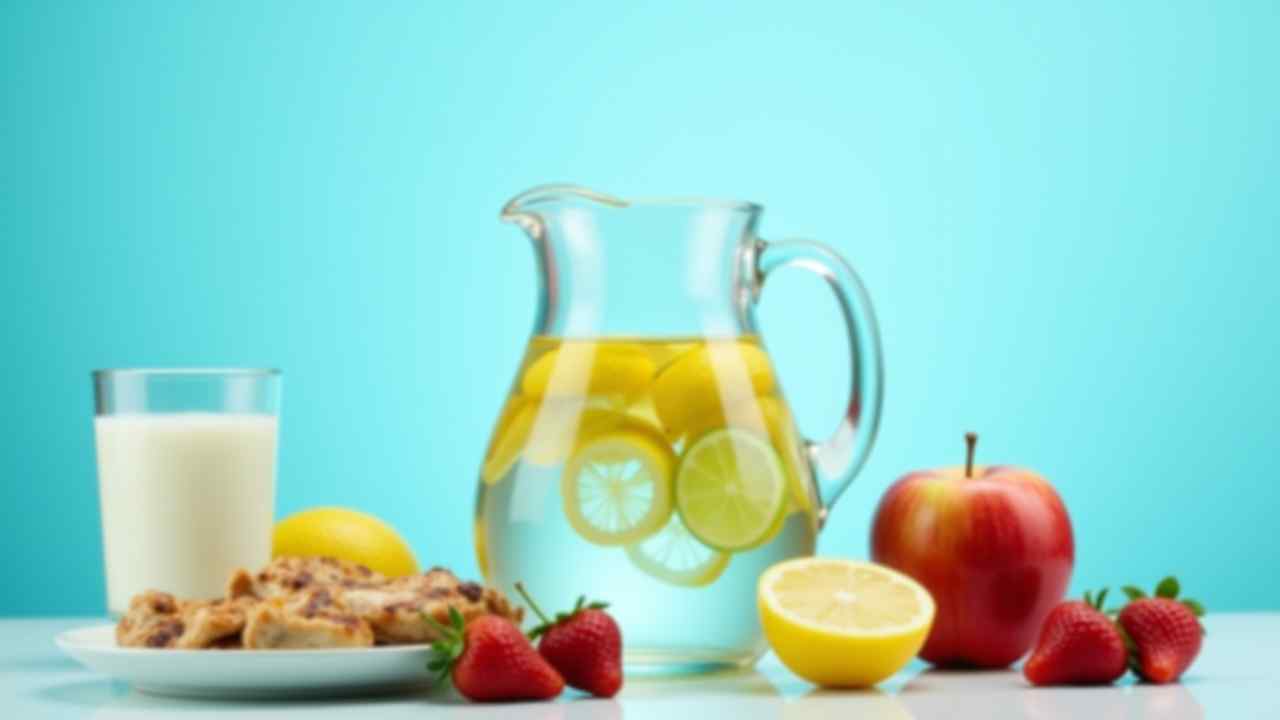
💧 A Doctor's Guide: The Best Diet to Avoid Kidney Stones
💧 A Doctor's Guide: The Best Diet to Avoid Kidney Stones 💧
❗ Medical Advisory: This guide provides general advice. If you have had a kidney stone, you must work with a doctor. They can analyze your stone to determine its type. A registered dietitian can then create a personalized diet plan for you.
Kidney stones can be incredibly painful. If you have experienced one, you want to prevent another. The good news is that your diet is the most powerful tool you have. The right eating plan can significantly reduce your risk.
A diet to avoid kidney stones is about more than just avoiding certain foods. It is a set of lifestyle habits. This guide will walk you through the most important strategies. Let's build a plan to protect your kidney health. ✅
🤔 What is the Single Most Important Rule?
The number one rule is simple: Drink plenty of water. This is the most effective way to prevent kidney stones. Dehydration is a leading cause of stone formation. Staying hydrated is not optional.
Why does water help? It dilutes your urine. When your urine is concentrated, minerals can crystallize and form stones. Dilute urine helps flush these substances out. Your goal should be to produce at least 2 liters of urine per day.
Carry a water bottle with you everywhere. Set reminders on your phone to drink. A great tip is to add fresh lemon juice to your water. The citrate in lemons is a natural stone inhibitor. 🍋
🥬 How Should You Manage Oxalate Intake?
The most common type of kidney stone is the calcium oxalate stone. This leads many to believe they should avoid calcium. This is a myth. In fact, the opposite is often true. The key is to pair foods correctly.
Why Should You Eat Calcium and Oxalate Together?
You should eat calcium-rich foods with your meals. When calcium and oxalate are eaten together, they bind in the intestines. This allows them to be safely eliminated. If you eat a low-calcium diet, oxalate is absorbed into your bloodstream. It then travels to the kidneys, where it can form stones.
What Are High-Oxalate Foods to Limit?
You do not need to eliminate these foods. But you should eat them in moderation. Always eat them with a source of calcium. High-oxalate foods include:
- Spinach, rhubarb, and beets
- Nuts, especially almonds
- Tea and dark chocolate
- Beans and soy products
🧂 What is the Role of Sodium in Kidney Stone Formation?
Sodium plays a major role in stone formation. A high-sodium diet can be a big problem. When you eat a lot of salt, your kidneys excrete more calcium into your urine. This excess urine calcium is a major risk factor.
The solution is to reduce your sodium intake. A key part of a diet to avoid kidney stones is limiting salt. Aim for less than 2,300 mg of sodium per day. Your doctor might recommend even less.
Most sodium comes from processed and restaurant foods. This includes canned soups, frozen dinners, and fast food. Cooking at home and reading labels are the best ways to control your sodium. Avoid the salt shaker at the table.
🥩 Should You Limit Animal Protein?
Eating large amounts of animal protein can be a problem. This includes red meat, poultry, and eggs. A high protein intake can increase uric acid in your urine. This can lead to both uric acid stones and calcium oxalate stones.
The recommendation is to eat animal protein in moderation. A healthy portion is about the size of a deck of cards. Try to limit it to once per day. Incorporating more plant-based meals is a great strategy.
A well-balanced diet to avoid kidney stones is a powerful tool. It focuses on hydration, moderation, and smart food pairings. By following these principles, you can take control of your kidney health. Always work with your doctor for a personalized plan. 🩺